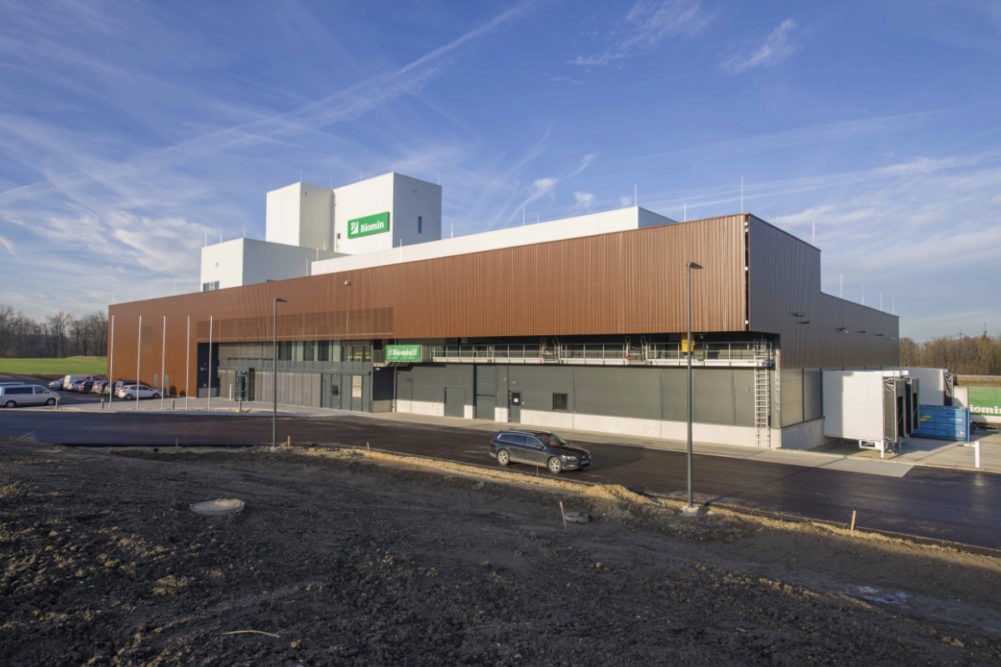GETZERSDORF, AUSTRIA — BIOMIN recently opened a premix production facility in Haag am Hausruck, Austria, to help meet demand for its animal nutrition products, including mineral feed, premixes and specialties.
Production at the facility, which can process up to 10 tonnes of finished product per hour, started in February. It includes a laboratory for on-site quality control and 54 silos with a storage capacity of 1,100 cubic meters.
“The new production unit represents the BIOMIN promise to customers by leveraging advanced technologies to deliver high quality animal nutrition solutions while ensuring safety, sustainability and traceability,” said Franz Waxenecker, managing director of BIOMIN.
The facility has been designed to ensure full transparency and minimize the risk of cross-contamination of final product. Self-driving automated guided vehicles (AGVs) ensure transport of materials throughout the facility in a closed container system. Batch managed inventory and electronic records capture when employees perform specific actions such as dosing or emptying each silo, for example.
The plant generates power from a geothermal system and solar panels on the rooftop.
“Our nutrition solutions contribute to sustainability by improving the efficiency of farm animals, boosting farm and feed mill profitability and reducing the ecological footprint of agriculture,” said Barbara Rüel, head of Global Product Management Animal Nutrition at BIOMIN.
Waxenecker said with the new facility, the company will be able to bring its solutions to new markets as part of its internationalization strategy.
The BIOMIN production unit at Haag am Hausruck has several notable quality certifications, namely GMP+, ISO 9001, ISO 14001 and HAACP.
Since scaling up production earlier in the year, BIOMIN has enacted a series of measures to ensure that it can continue to deliver premix products to farmers, feed millers and integrations in Austria and throughout the world.
Precautions taken to limit the risk of coronavirus infection include requiring employees to wear masks, restriction of outside visitors, increased sanitation measures and staggered shift work, among others.
“One result of the coronavirus situation is that agriculture and food production have been recognized as essential sector,” Waxenecker said. “Through prompt and extensive actions put in place, we have been able to fulfill our role in the food production chain and ensure that farm animals receive high quality nutrition, so that farmers can feed the world.”






